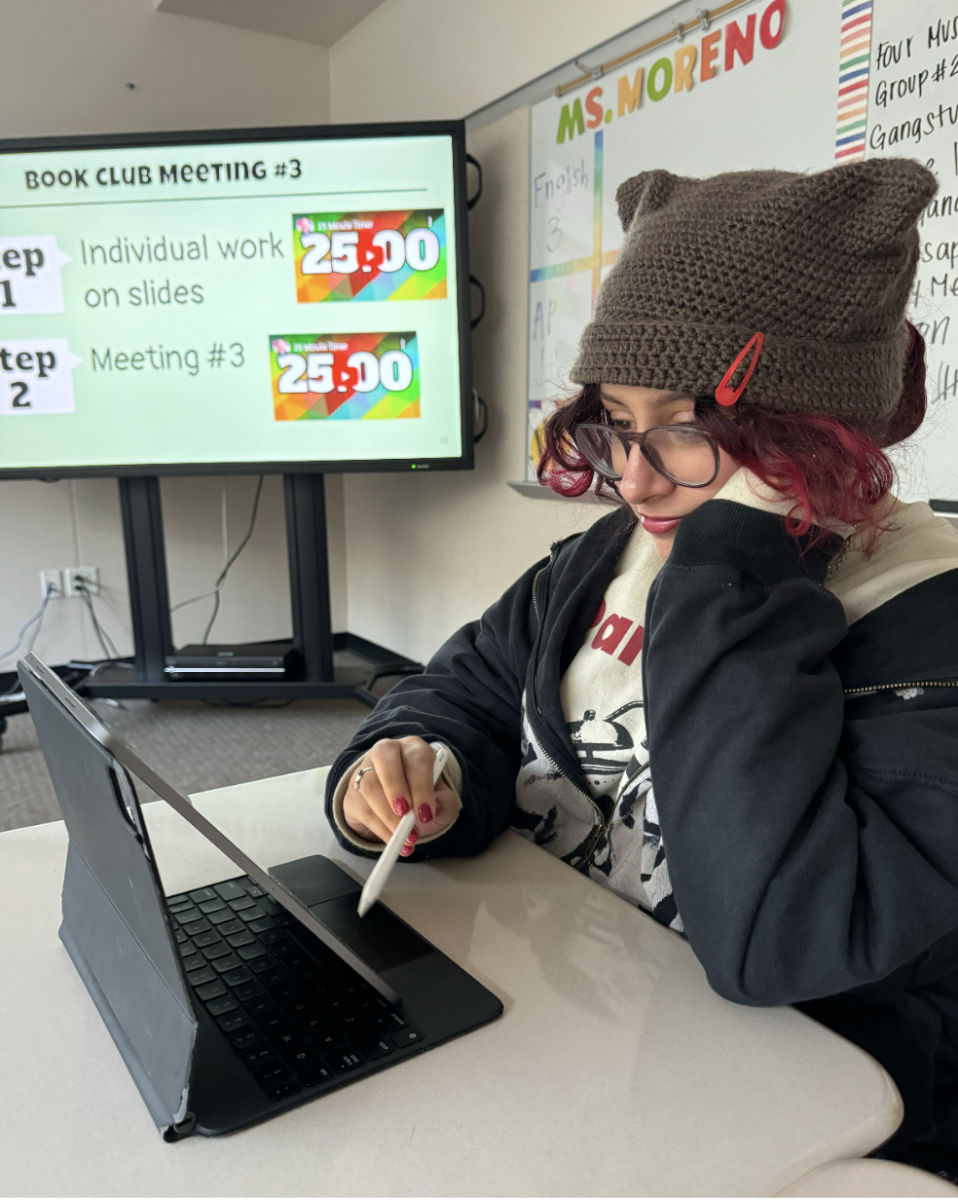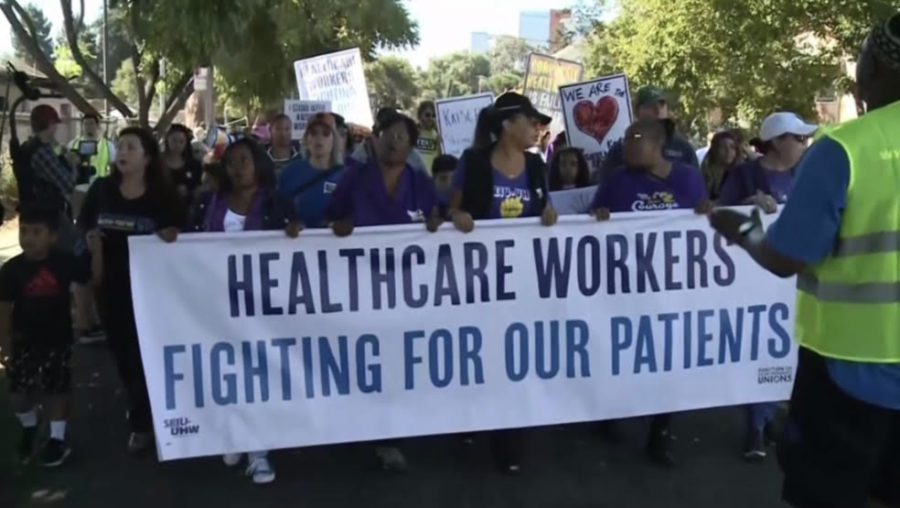The Kaiser Employee Strike: Explained
Hospital staff and protestors held up signs in response to staff shortages at Kaiser Permanente Hospital of San Francisco on Oct. 19, 2021.
As the end of October approaches, many hospital staff are finding more and more burdens being placed upon them as many hospitals are facing a crisis due to a shortage of staff. With the pandemic still looming in the background, health care workers are finding it harder and harder to respond and deliver sufficient care due to the overwhelming number of patients. Along with this a massive slash in bonus pay only adds to the problems.
Over the past year, hospitals have reported that “workers have been driven away from the bedside by burnout” and in turn have resorted to “early retirement [due to] the seemingly unending stress of the pandemic ” (Washington Post). It should be noted that “about 10% of [every] 10,000 workers have retired, left the profession, or taken extended leaves of absence during the pandemic” (SEIU-United Healthcare Workers West). The meager amount of payand having to risk their lives for patients everyday, nurses are fed up and feel as if such a policy is a “slap in the face” (Montoya, a Kaiser employee) from Kaiser Permanente.
Due to such overload from the pandemic and critical understaffing, many health care workers have started to strike, primarily against Kaiser Permanente and Sutter Health facilities, as they have experienced a considerable slash in their pay while Kaiser seemingly continues to grow more prosperous day by day. More than two dozen hospitals across the state “have experienced strikes by engineers, janitorial staff, respiratory therapists, nurses, midwives, physical therapists and technicians over the past four months” (CalMatters). However, such strikes can be dangerous.
During the past week, “nearly a third of all California hospitals reported critical staffing shortages to the federal government,” resulting in “hospitals [being] unable to meet the state’s required staff-to-patient ratios” (CalMatters). If this pattern continues to spike, the health of Californians could potentially be put at risk, as nurses will be unable to schedule adequate numbers of check-ups or necessary treatments.
Nurses recognize the importance of their positions. However, due to unfair pay anincredibly high burnout rates, many healthcare workers are asking for employers and healthcare giants such as Kaiser to incentivize healthcare workers to stay in their positions through additional financial support. In order to support hospital staff, one can look towards Assembly Bill 650, which healthcare workers are desperately trying to find comfort in.
Your donation will support the student journalists of Dublin High School. Your contribution will allow us to purchase equipment and cover our annual website hosting costs.

Summer joined the Dublin Shield to improve her writing skills but stayed for the friendly community and warm staff. It is Summer's fourth year on...









![[Book Review] Weapons of Math Destruction: The insidious danger of Big Data](https://thedublinshield.com/wp-content/uploads/2024/06/wmdsarticle-727x1200.jpg)






















